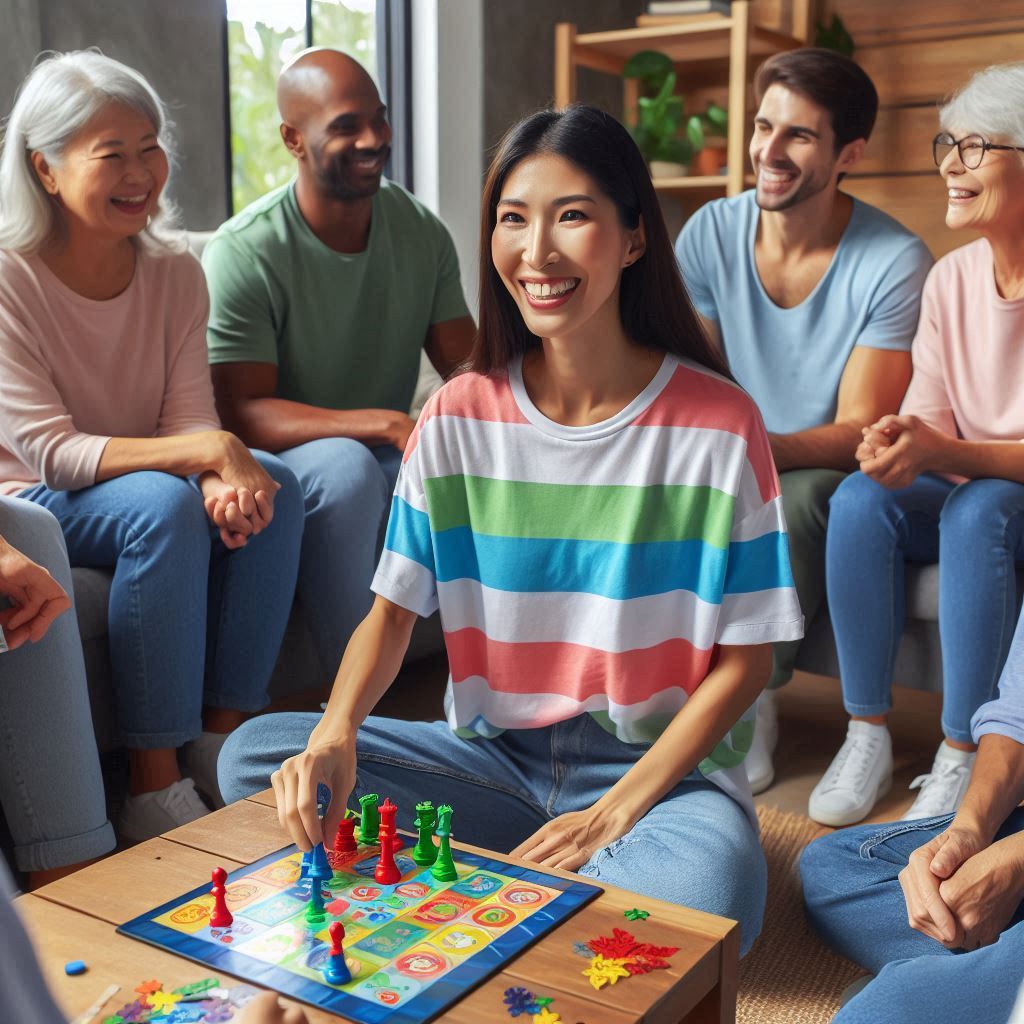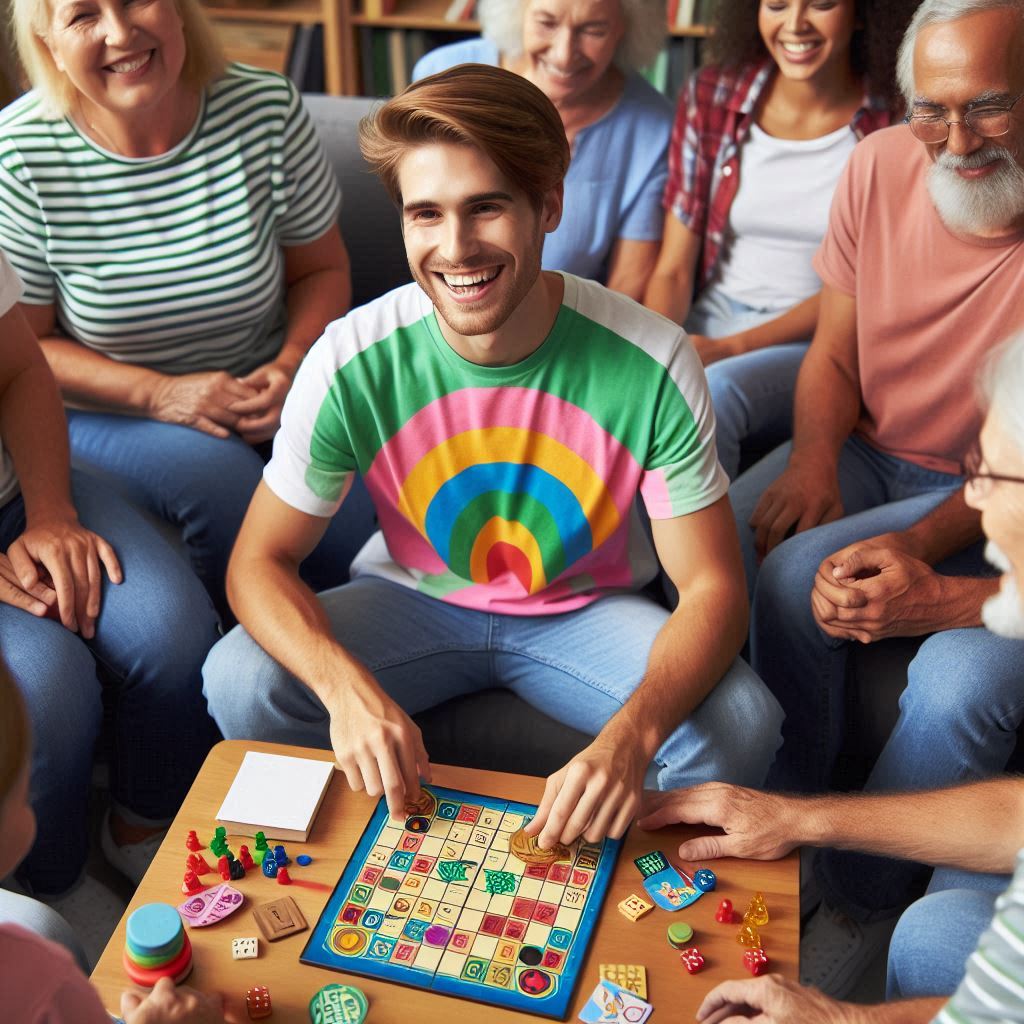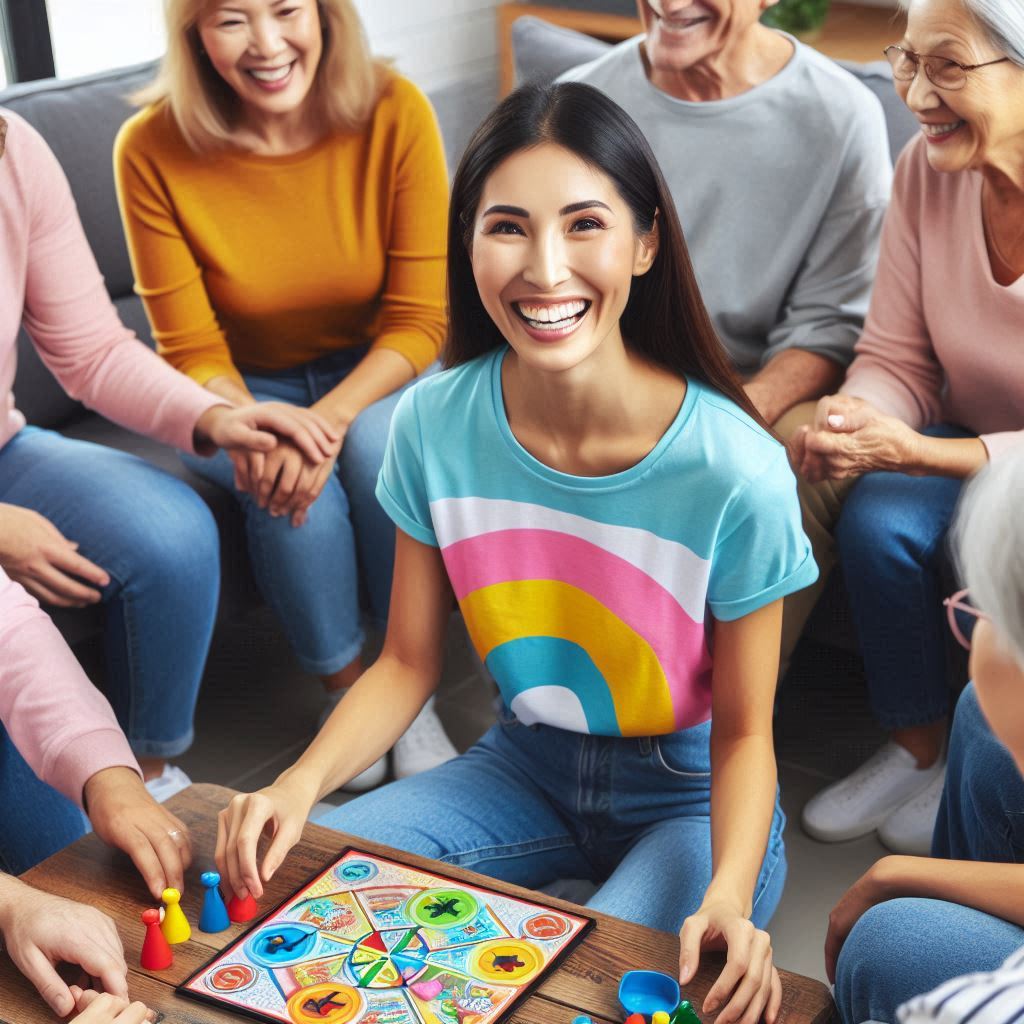Introduction
An Introduction to Recreational Therapy for Anxiety and Depression
Recreational therapy involves using recreational activities as a therapeutic tool. It has been shown to improve mental health.
Anxiety and depression are prevalent in today’s society, affecting millions of people globally. These conditions can have a significant impact on daily life.
Recreational therapy offers a holistic approach to treating anxiety and depression. It focuses on improving physical, emotional, and social well-being.
By engaging in activities such as art, music, sports, and nature walks, individuals can alleviate symptoms of anxiety and depression.
Recreational therapy provides a non-traditional way of addressing mental health issues. It offers a creative and fun alternative to traditional therapy methods.
The benefits of recreational therapy include improved mood, reduced stress levels, increased self-confidence, and enhanced social skills.
Individuals who participate in recreational therapy often experience a sense of accomplishment and fulfillment. It helps them build resilience and cope with life’s challenges.
Overall, recreational therapy can be a valuable tool in managing anxiety and depression. It promotes overall well-being and enhances quality of life for individuals struggling with these mental health conditions.
The Role of Recreational Therapy in Managing Anxiety
Anxiety affects millions of people worldwide, disrupting their daily lives. Managing anxiety effectively is crucial for a better quality of life. Recreational therapy offers a holistic approach to alleviating anxiety symptoms.
By engaging in structured recreational activities, individuals can find relief and build resilience against anxiety.
How Recreational Activities Help Alleviate Symptoms of Anxiety
Recreational activities provide a constructive outlet for stress and tension. Physical activities release endorphins, the body’s natural mood enhancers.
Engaging in enjoyable activities distracts the mind from worries and negative thoughts. Additionally, these activities promote social interaction, reducing feelings of isolation and loneliness.
Physical activities like hiking or yoga improve physical health, which directly impacts mental well-being. Regular exercise boosts confidence and self-esteem, essential for combating anxiety.
Creative activities like painting or writing allow individuals to express their emotions safely. This expression can lead to a deeper understanding of their anxiety triggers.
Recreational therapy also encourages mindfulness, which is crucial in managing anxiety. Activities like meditation or tai chi promote relaxation and present-moment awareness.
Mindfulness helps individuals break the cycle of negative thinking, providing a sense of calm and control.
Examples of Recreational Therapy Techniques for Anxiety Management
Art Therapy
Art therapy involves using creative processes to express and explore emotions. Individuals can use drawing, painting, or sculpting to externalize their feelings.
Art therapy helps individuals gain insight into their anxiety and develop coping strategies. This non-verbal form of expression can be particularly beneficial for those who struggle with verbal communication.
Music Therapy
Music therapy uses music to address emotional, cognitive, and social needs. Listening to calming music or playing instruments can reduce anxiety levels.
Music therapy sessions may involve songwriting, listening to different genres, or engaging in musical improvisation. The rhythmic and repetitive nature of music can have a soothing effect, promoting relaxation and emotional balance.
Animal-Assisted Therapy
Animal-assisted therapy involves interacting with trained animals to improve mental health. Spending time with animals can lower blood pressure and reduce stress hormones.
Activities may include petting, feeding, or walking the animal. The unconditional affection and companionship provided by animals can significantly alleviate anxiety.
Outdoor Activities
Engaging in outdoor activities like hiking, gardening, or kayaking can be highly beneficial. Nature exposure has a calming effect, reducing anxiety symptoms.
Outdoor activities also encourage physical exercise, which is crucial for mental health. The combination of fresh air, physical movement, and natural beauty promotes a sense of well-being.
Yoga and Meditation
Yoga combines physical postures, breathing exercises, and meditation to promote relaxation. Practicing yoga regularly can reduce stress and anxiety levels.
Meditation, on the other hand, focuses on calming the mind and achieving a state of mindfulness. Both techniques enhance self-awareness and help individuals manage anxiety more effectively.
Group Activities
Group activities like sports, dance classes, or book clubs provide social interaction and support. Sharing experiences and participating in group activities can reduce feelings of isolation.
These activities foster a sense of community and belonging, essential for mental health.
Recreational therapy offers diverse techniques to manage anxiety effectively. By incorporating these activities into daily routines, individuals can experience significant improvements in their mental well-being.
Transform Your Career Today
Unlock a personalized career strategy that drives real results. Get tailored advice and a roadmap designed just for you.
Start NowRead: Career Opportunities for Genetic Counselors
The Benefits of Recreational Therapy for Depression
Depression can be debilitating, affecting every aspect of life. Recreational therapy offers a proactive approach to managing depression.
By engaging in various activities, individuals can experience significant mood improvements and a decrease in depressive symptoms.
Improving Mood Through Recreational Activities
Recreational activities play a crucial role in enhancing mood. Activities such as exercise, arts and crafts, and outdoor adventures can stimulate the release of endorphins.
Endorphins are natural mood elevators that help reduce feelings of depression. When people engage in enjoyable activities, they often experience a sense of accomplishment and satisfaction.
This positive reinforcement can break the cycle of negative thoughts that fuel depression.
Physical activity, in particular, has a profound impact on mood. Exercise increases the production of serotonin and dopamine, neurotransmitters that regulate mood.
Regular physical activity can lead to long-term improvements in depressive symptoms. Additionally, creative activities like painting, writing, or playing music provide a healthy outlet for emotions.
These activities encourage self-expression and can be particularly therapeutic.
The Importance of Social Interaction
Social interaction is a key component of recreational therapy. Engaging with others helps individuals feel connected and supported. Isolation often exacerbates depression, making social activities essential for recovery.
Group activities, such as team sports or group classes, foster a sense of community. They provide opportunities for individuals to build relationships and share experiences.
Participating in social activities can also improve self-esteem. Positive interactions with others can reinforce a sense of belonging and worth. When people feel valued and accepted, their overall mood improves.
Recreational therapy often includes structured group sessions, which offer a safe space for socialization. These sessions are designed to encourage communication and teamwork, essential skills for managing depression.
Enhancing Life Skills Through Recreational Therapy
Recreational therapy does more than just improve mood and provide social interaction. It helps individuals develop essential life skills.
Through various activities, people learn to set goals, solve problems, and manage their time effectively. These skills are crucial for overcoming depression and leading a fulfilling life.
Learning new skills can boost confidence and self-efficacy. When individuals successfully complete a challenging task, they often feel a sense of pride and achievement.
This positive feedback loop can motivate them to continue engaging in therapeutic activities. Moreover, recreational therapy encourages mindfulness and relaxation.
Practices such as yoga and meditation teach individuals how to focus on the present moment, reducing anxiety and depressive symptoms.
In general, Recreational therapy offers a holistic approach to managing depression. By engaging in enjoyable activities, individuals can improve their mood and decrease depressive symptoms.
The importance of social interaction in this therapy cannot be overstated. Building connections and enhancing life skills are critical for recovery.
Recreational therapy provides a supportive and enriching environment that promotes overall well-being. Embracing these activities can lead to significant improvements in mental health and quality of life.
Read: Genetic Counseling for Cancer Patients
Types of Recreational Activities for Anxiety and Depression
Recreational activities offer therapeutic benefits for those struggling with anxiety and depression. Incorporating these activities into a therapy plan can enhance mental health and overall well-being.
Below are some types of recreational activities that can be particularly beneficial.
Physical Activities
Exercise
Exercise releases endorphins, which help improve mood and reduce anxiety. Activities like jogging, swimming, or cycling can be included in daily routines. Even a simple daily walk can have significant benefits.
Yoga
Yoga combines physical postures, breathing exercises, and meditation. It helps reduce stress and promote relaxation. Incorporate yoga sessions into a weekly schedule, either through classes or guided online videos.
Dancing
Dancing is a fun way to get moving and improve mood. Join a dance class or simply dance at home to favorite songs. The combination of physical activity and music can be particularly uplifting.
Creative Activities
Art Therapy
Art therapy encourages expression through drawing, painting, or sculpting. It can help individuals process emotions and reduce stress. Set aside time each week for art sessions, either in a group setting or individually.
Music Therapy
Listening to or creating music can be deeply therapeutic. Playing an instrument or singing helps divert attention from stressors. Include music therapy sessions in your routine, using instruments or singing groups.
Writing and Journaling
Writing down thoughts and feelings can provide clarity and relief. Journaling daily about emotions or experiences helps manage anxiety and depression. Set aside a quiet time each day for reflective writing.
Social Activities
Group Activities
Participating in group activities fosters social connections and reduces feelings of isolation. Join clubs, groups, or community events to meet new people. These interactions can provide support and enhance mood.
Volunteer Work
Helping others can improve self-esteem and reduce feelings of depression. Find local volunteer opportunities that match your interests. Engaging in meaningful work can provide a sense of purpose and satisfaction.
Showcase Your Business Today
Reach thousands of readers actively exploring professional services. Publish your business profile and grow your audience now.
Publish NowPet Therapy
Interacting with animals can lower anxiety and improve mood. Consider pet therapy programs or spending time with pets. Animals provide companionship and unconditional love, which can be very comforting.
Outdoor Activities
Gardening
Gardening offers physical activity and a connection with nature. Spending time in a garden can reduce stress and provide a sense of accomplishment. Start a small garden at home or participate in community gardening projects.
Hiking and Nature Walks
Spending time in nature has a calming effect on the mind. Plan regular hikes or nature walks to enjoy fresh air and scenic views. Nature therapy can be a powerful tool in managing anxiety and depression.
Bird Watching
Bird watching combines the benefits of being outdoors with a focused, calming activity. Join a bird-watching group or explore local parks. This hobby encourages mindfulness and appreciation of nature.
Integrating Activities into a Therapy Plan
Incorporating these activities into a therapy plan requires consistency and commitment. Start with one or two activities that appeal most. Gradually add more as you feel comfortable.
Regularly engage in these activities to see the best results. Each activity offers unique benefits, and together, they can create a comprehensive approach to managing anxiety and depression.
Read: Salary and Job Outlook for Genetic Counselors

How to Incorporate Recreational Therapy into Treatment Plans
Recreational therapy offers unique benefits for treating anxiety and depression. It encourages engagement in enjoyable activities, helping patients regain their sense of well-being.
To maximize these benefits, treatment plans should be individualized. Additionally, recreational therapy can complement other treatment forms for anxiety and depression.
Here’s how to incorporate recreational therapy into treatment plans effectively.
Importance of Individualized Treatment Plans
Individualized treatment plans are crucial in recreational therapy. Each person’s experience with anxiety and depression is unique.
Therefore, their therapy must be tailored to their specific needs and preferences. Individualized plans increase the likelihood of patient engagement and adherence.
Personalizing activities can enhance the therapeutic effect, making therapy more effective.
Understanding a patient’s interests, strengths, and limitations is the first step. For example, one patient might find relief in art therapy, while another might benefit from physical activities.
Therapists must assess patients thoroughly to create a personalized plan. This assessment can include interviews, questionnaires, and observations.
Once the therapist has a clear understanding of the patient, they can design a plan. This plan should include various activities that the patient enjoys and finds meaningful.
It’s important to set realistic goals and monitor progress regularly. Adjustments should be made as needed to ensure the therapy remains effective and engaging.
Complementing Other Treatments
Recreational therapy can complement traditional treatments for anxiety and depression. It works well alongside medication, cognitive-behavioral therapy (CBT), and other therapeutic approaches.
By integrating recreational therapy, patients can experience a more holistic approach to their treatment.
Medication can alleviate symptoms, but it doesn’t address all aspects of mental health. Recreational therapy can fill this gap by promoting physical activity, creativity, and social interaction.
These elements are often neglected in traditional treatments but are crucial for overall well-being.
Cognitive-behavioral therapy (CBT) focuses on changing negative thought patterns. Recreational therapy can reinforce this by providing positive experiences and helping patients develop new coping strategies.
For instance, engaging in team sports can improve social skills and boost self-esteem. Art therapy can help patients express emotions that are difficult to verbalize.
Furthermore, recreational therapy can reduce the side effects of medication.
Physical activities like yoga or swimming can alleviate medication-induced weight gain and lethargy. Creative activities can reduce feelings of numbness or emotional flatness.
Practical Steps for Integration
To integrate recreational therapy into treatment plans, follow these steps. First, educate patients and their families about its benefits. Understanding how recreational therapy works can increase their willingness to participate.
Second, collaborate with other healthcare providers. Coordination between therapists, doctors, and counselors ensures a cohesive treatment plan. This collaboration can help identify the best recreational activities for each patient.
Third, start with small, manageable activities. Gradually increase the complexity and duration as patients become more comfortable and confident. This approach prevents overwhelming patients and ensures steady progress.
Lastly, continually evaluate and adjust the plan. Regular check-ins and feedback sessions help fine-tune the therapy. This adaptability ensures that the treatment remains effective and relevant.
In review, Incorporating recreational therapy into treatment plans for anxiety and depression offers numerous benefits.
By personalizing activities and complementing other treatments, patients can achieve a more balanced and effective recovery.
Through individualized plans and continuous evaluation, recreational therapy can significantly enhance the overall treatment experience.
Read: Genetic Counseling and Health Insurance
Success Stories of Recreational Therapy for Anxiety and Depression
Recreational therapy has proven to be a beneficial treatment option for individuals struggling with anxiety and depression.
Here are some real-life examples of individuals who have experienced positive outcomes and improvements in their mental health after participating in recreational activities:
Sarah’s Journey to Finding Peace
- Sarah had been battling severe anxiety for years and had tried various medications and therapies without much success.
- After starting recreational therapy, Sarah found solace in activities like hiking and yoga, which helped her manage her anxiety symptoms.
- Through consistent participation in outdoor activities, Sarah noticed a significant decrease in her anxiety levels and a newfound sense of peace.
- Today, Sarah credits recreational therapy for giving her the tools to cope with her anxiety and live a more fulfilling life.
Mark’s Transformation through Recreational Activities
- Mark had been struggling with depression for years, feeling isolated and hopeless about his future.
- Upon enrolling in a recreational therapy program, Mark discovered a passion for painting and pottery, which ignited a spark in him.
- Engaging in creative activities allowed Mark to express his emotions and connect with others in a supportive environment.
- Over time, Mark’s mood began to improve, and he developed a sense of purpose and accomplishment through his artwork.
Jasmine’s Recovery Journey with Recreational Therapy
- Jasmine had been overwhelmed by feelings of anxiety and hopelessness, finding it difficult to even get out of bed in the morning.
- Through participating in recreational therapy sessions that focused on mindfulness and meditation, Jasmine learned to quiet her racing thoughts and focus on the present moment.
- As Jasmine continued to practice these relaxation techniques, she noticed a gradual decrease in her anxiety levels and an improvement in her overall mood.
- Today, Jasmine feels more in control of her emotions and is better equipped to manage her anxiety thanks to recreational therapy.
These success stories highlight the transformative power of recreational therapy in enhancing mental health and well-being for individuals struggling with anxiety and depression.
By engaging in meaningful activities and connecting with others in a supportive environment, individuals can experience positive outcomes and lasting improvements in their mental health.
Conclusion
Recreational therapy offers a holistic approach to managing anxiety and depression. This blog post explored its various benefits and methods. Here, we summarize the key points and emphasize its significance.
Key Points Summarized
Recreational therapy incorporates enjoyable activities to promote mental health.
These activities include arts and crafts, music, exercise, and social interactions. Each activity plays a crucial role in alleviating symptoms of anxiety and depression.
- Arts and Crafts: Engaging in creative activities can significantly reduce stress and anxiety. Artistic expression provides an emotional outlet and boosts self-esteem.
- Music Therapy: Listening to and creating music can improve mood and emotional well-being. Music therapy helps in processing emotions and reducing symptoms of depression.
- Exercise: Physical activity releases endorphins, which are natural mood lifters. Regular exercise can reduce anxiety and improve overall mental health.
- Social Interactions: Participating in group activities fosters a sense of community and belonging. Social connections are vital for emotional support and mental health.
Significance of Recreational Therapy
Recreational therapy is essential in the management of anxiety and depression. It offers a non-invasive and enjoyable way to address mental health issues. Unlike traditional therapies, recreational therapy focuses on positive engagement and personal interests.
Holistic Approach
Recreational therapy treats the individual as a whole, addressing both mind and body. This comprehensive approach helps in achieving a balanced and fulfilling life.
Personalization
Therapists tailor activities to suit individual preferences and needs. This customization ensures higher engagement and effectiveness. Patients are more likely to participate in activities they enjoy.
Accessibility
Recreational therapy is accessible and can be easily integrated into daily routines. Many activities do not require specialized equipment or settings, making them feasible for most people.
Complementary to Other Treatments
Recreational therapy complements other treatments like medication and psychotherapy. It enhances the overall treatment plan and improves outcomes. Patients often experience faster and more sustained improvements.
Reducing Stigma
Engaging in recreational activities normalizes the conversation around mental health. It reduces the stigma associated with seeking help for anxiety and depression. Recreational therapy promotes mental wellness as a part of everyday life.
Emphasizing the Importance
The importance of recreational therapy cannot be overstated. It provides a proactive approach to mental health management. Through engaging activities, individuals can reclaim control over their mental well-being.
Enhancing Quality of Life
Recreational therapy significantly enhances the quality of life. By reducing symptoms of anxiety and depression, individuals can lead more fulfilling and productive lives.
Promoting Long-Term Wellness
Recreational therapy promotes long-term mental wellness. It equips individuals with healthy coping mechanisms that last a lifetime.
Final Thoughts
In closing, recreational therapy offers a powerful tool for managing anxiety and depression. It empowers individuals through enjoyable and meaningful activities.
By integrating recreational therapy into mental health care, we can foster a happier, healthier society.
[E-Books for Sale]
The Big Book of 500 High-Paying Jobs in America: Unlock Your Earning Potential
$19.99 • 500 High-Paying Jobs • 330 pages
Explore 500 high-paying jobs in America and learn how to boost your career, earn more, and achieve success!
See All 500 High-Paying Jobs of this E-Book
1001 Professions Without a Degree: High-Paying American Jobs You Can Start Now
$19.99 • 1001 Professions Without a Degree • 174 pages
Discover 1001 high-paying jobs without a degree! Unlock career tips, skills, and success strategies for just $19.99!




